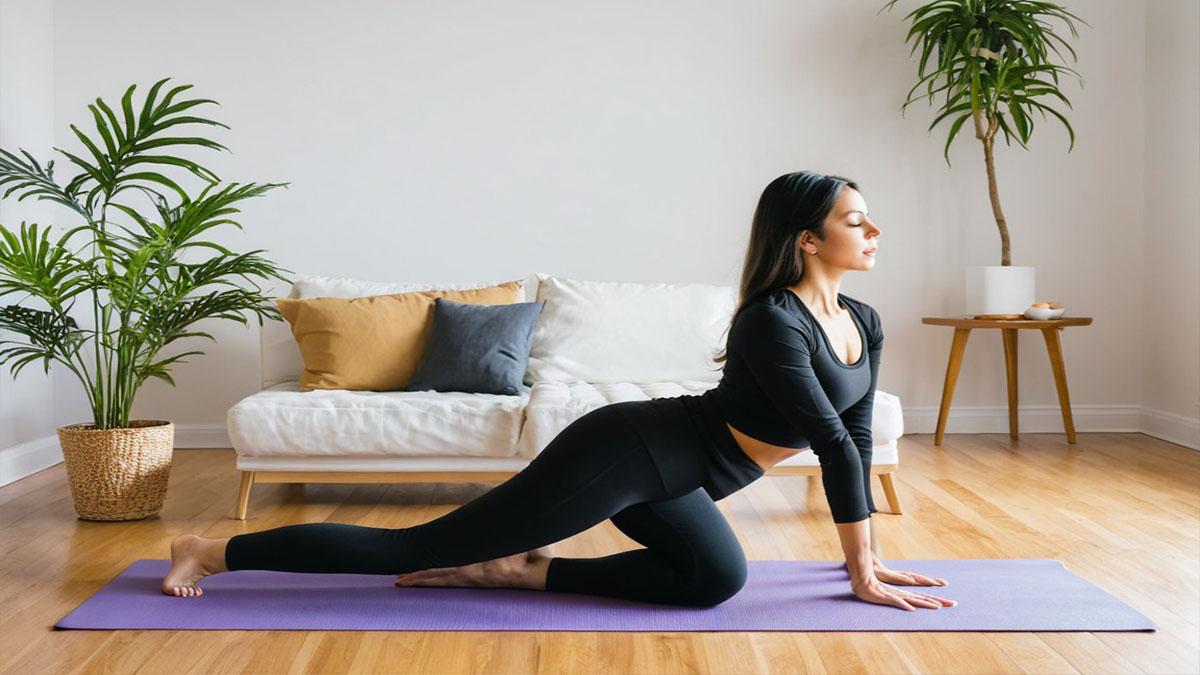
When you’re feeling under the weather, exercise might be the last thing on your mind. However, practicing gentle yoga can be a supportive way to help your body recover more quickly and comfortably. Yoga when you’re sick can aid in reducing stress, improving circulation, and boosting your immune system. It’s essential to listen to your body and choose poses that are restorative rather than strenuous. Here’s a guide on how to practice yoga safely and effectively when you’re not feeling your best.
1. The Benefits of Yoga When Sick
Practicing yoga during an illness, particularly when dealing with mild colds or fatigue, can offer several benefits:
- Boosts Immunity: Gentle movements and deep breathing can stimulate the lymphatic system, which helps your body fight off illness.
- Reduces Stress: Illness often brings discomfort and stress, but yoga’s calming nature can help lower cortisol levels, promoting relaxation and better sleep.
- Improves Circulation: Yoga increases blood flow, which can help your body deliver nutrients to tissues and remove toxins more efficiently.
- Eases Congestion: Certain yoga poses and breathing techniques can help open up the chest and sinuses, providing relief from congestion.
2. Gentle Yoga Poses for When You’re Sick
When you’re sick, it’s crucial to focus on poses that are gentle and restorative. Here are some yoga poses that can help you feel better without taxing your body:
- Child’s Pose (Balasana): This resting pose helps calm the mind and body. It gently stretches the lower back and hips, and can be very comforting when you’re feeling unwell. Breathe deeply in this pose to help ease any tension.
- Supported Bridge Pose (Setu Bandhasana): With the help of a bolster or pillow under your lower back, this pose can gently open up the chest and relieve congestion. It’s also excellent for promoting circulation.
- Reclining Bound Angle Pose (Supta Baddha Konasana): This restorative pose opens up the hips and chest while promoting relaxation. It’s perfect for when you want to rest and breathe deeply without much effort.
- Legs Up the Wall (Viparita Karani): This pose is highly restorative and can help reduce swelling in the legs, improve circulation, and promote relaxation. It’s great for when you’re feeling fatigued or need to rest but still want to practice yoga.
- Seated Forward Bend (Paschimottanasana): If you have the energy, a gentle forward bend can help calm the nervous system and relieve headaches. Be sure to keep a slight bend in your knees to avoid strain.
3. Breathing Exercises (Pranayama) for Recovery
Breathing exercises, or pranayama, can be incredibly beneficial when you’re sick. They can help clear your nasal passages, reduce stress, and improve your energy levels:
- Deep Belly Breathing (Diaphragmatic Breathing): This basic breathing technique involves taking slow, deep breaths that fill the lungs and expand the diaphragm. It’s very soothing and helps to calm the nervous system.
- Alternate Nostril Breathing (Nadi Shodhana): This breathing practice helps balance the body’s energy and can be particularly helpful in relieving nasal congestion.
- Ujjayi Breath (Ocean Breath): This breath involves a gentle constriction of the throat to create a soothing sound. It’s excellent for calming the mind and reducing stress.
4. When to Avoid Yoga
While yoga can be helpful when you’re sick, there are times when it’s better to rest completely:
- Fever: If you have a fever, your body needs rest more than anything else. Skip yoga until your temperature returns to normal.
- Severe Illness: If you’re dealing with a more severe illness like the flu, rest is your best option. Yoga can wait until you’re feeling better.
- Exhaustion: If you’re extremely fatigued, even gentle yoga might be too much. Listen to your body and prioritize rest.
Conclusion
Yoga can be a gentle, supportive practice when you’re feeling under the weather, helping to ease symptoms and promote recovery. However, it’s essential to listen to your body and choose poses that match your energy levels. Remember that the goal of yoga when sick is not to push yourself but to care for your body and mind in a way that aids healing.
